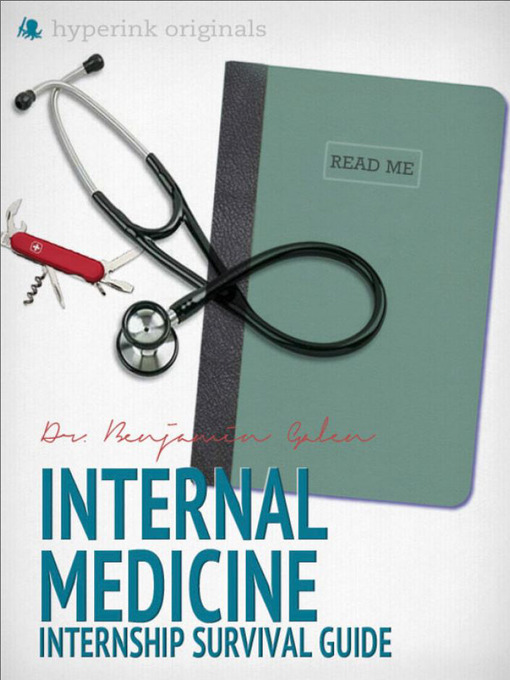ABOUT THE BOOK
The transition from medical student to physician is one of the most important events in the life of a young doctor. From the moment medical school graduates step foot on the internal medicine ward as "real doctors," they will be leaving behind civilian life forever. Hereafter, patients, family, and friends will look to the new doctor for help and healing, counting on years of study and training to have provided the tools to diagnose and treat disease.Residency is a challenging time because doctors are charged with learning as much as they can, but are also hospital employees with a job to perform. The hope of this guide is that an intern will be able to navigate the rocky waters of internship whether remaining in internal medicine residency or matriculating to another field such as dermatology, neurology, anesthesiology, or radiology. This guide is not a practical how-to, as a residency program should provide such support. It is, however, designed to help interns maneuver the pitfalls of the workplace, navigate interpersonal interactions, and utilize the best tools and practices during the course of their internship.MEET THE EXPERTDr. Galen was born an identical twin in Cleveland, OH. He attended the boys preparatory academy, University School, where he edited the literary magazine and the school newspaper. At Brown University, he studied biology primarily, but not without availing himself of Brown's Classics and Comparative Literature Departments.At Tufts University School of Medicine he led the Progressive Students' Alliance and the local chapter of Medical Students for Choice. He is completing residency in internal medicine at Yale University and resides with his fiancee in New Haven, CT. Outside of work he enjoys the Yale Writer's Workshop, Super 8 film-making, and classic rock.
EXCERPT FROM THE BOOK
Language matters because in internal medicine we spend most of our day talking to each other (on rounds), talking to patients, their families, and delivering care by communication with nurses, pharmacists, and physicians from other fields. Communication is at internal medicine's core, not only verbally but also in our lengthy admission history and physicals, daily progress notes, and our outpatient clinic notes.Doing this job well is a huge part of being an effective physician at all levels. Communication should be precise and should always stem from your best understanding of a patient's clinical condition. How you talk to everyone in the complicated inpatient hospital workplace can be as important as what you say."Process." Do not state on rounds, "there must be a pulmonary process" or "something rheumatologic going on." These are generalizations and do not represent your best effort at differential diagnosis. Think and speak in terms of etiology, e.g. "vasculitis could explain these signs and symptoms.""I've ever seen." For example, "this is the lowest platelet count I've ever seen." Using your limited clinical experience from 3rd year of med school until now as a judge of severity demonstrates a lack of self-awareness. A member of your medical school's class of 1965 can rate findings based on his clinical experience. Instead, refer to known thresholds with clinical significance, such as "this platelet count below 20,000 puts my patient at risk for spontaneous bleeding."...Buy a copy to keep reading!
